Graham Reid | | 4 min read
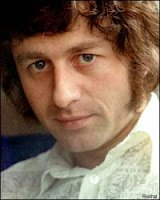
Was it three times? Or four?
Not even Tony Burrows is absolutely certain but he thinks it was three.
Three times on the same 1970 episode of Britain's Top of the Pops television show where he appeared in three different bands: White Plains (singing My Baby Loves Lovin'), Edison Lighthouse (Love Grows Where My Rosemary Goes) and Brotherhood of Man (United We Stand).
He was also in the novelty band the Pipkins for Gimme Dat Ding whom some recall being on the same show.
Later he would say, “We were darting from one stage to another . . . it was ridiculous . . . [the songs] were all recorded over the space of six months, but they all seemed to come out at the same time.
“For that Top of the Pops I was running from one stage to another, zipping in and out of my dressing room to do costume changes along the way.”
Or not.
It's been disputed that the main three songs – we put Gimme Dat Ding aside – were all on the same show.
However that takes nothing away from Burrows' remarkable year, 1970.
Edison Lighthouse was on two shows with Brotherhood of Man (January 29 and February 19) then -- between times and after – Edison Lighthouse were on with White Plains (Feb 12 and 26).
 Four appearances in a month, and while they may have been one-hit wonders they were big and memorable hits: all went top 10 in the UK, Edison Lighthouse to number one.
Four appearances in a month, and while they may have been one-hit wonders they were big and memorable hits: all went top 10 in the UK, Edison Lighthouse to number one.
But despite that, the all-but-anonymous Burrows and the equally faceless studio bands he fronted were finished by the middle of the following year, despite attempts at other singles and even albums.
These were studio projects, mostly by the prolific songwriting team of the Rogers Greenaway and Cook (with Burrows as singer). They were smart, radio-directed songs from two writers who'd been on the road with their band the Kestrels but didn't like it.
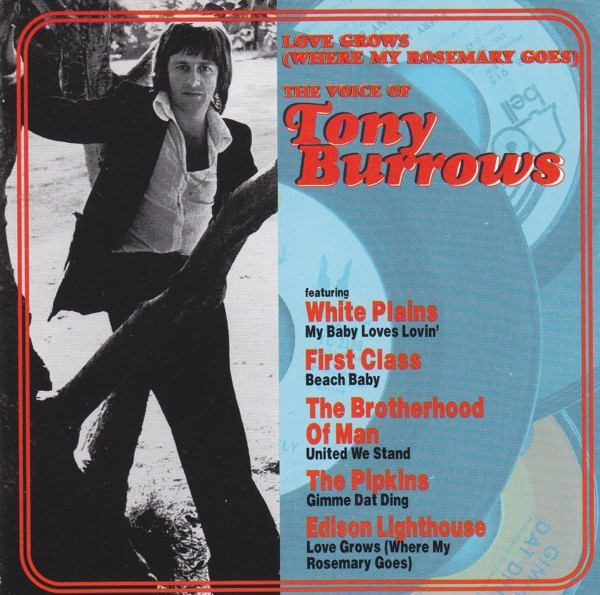 They preferred to stay at home or in the studio knocking out hits for the Fortunes (You've Got Your Troubles, Freedom Come Freedom Go), Gene Pitney (Something's Gotten Hold of My Heart), Cilla Black, the Hollies (Long Cool Woman in a Black Dress, Creedence's John Fogerty sued them for plagiarising his Green River), Blue Mink (Melting Pot) and various studio musicians who became Edison Lighthouse, Brotherhood of Man and White Plains.
They preferred to stay at home or in the studio knocking out hits for the Fortunes (You've Got Your Troubles, Freedom Come Freedom Go), Gene Pitney (Something's Gotten Hold of My Heart), Cilla Black, the Hollies (Long Cool Woman in a Black Dress, Creedence's John Fogerty sued them for plagiarising his Green River), Blue Mink (Melting Pot) and various studio musicians who became Edison Lighthouse, Brotherhood of Man and White Plains.
These were pop confections as Will Hodgkinson says in his insightful and often hilarious 2022 book In Perfect Harmony; Singalong Pop in '70s Britain, “My Baby Loves Lovin' by White Plains is soul music without the suffering, a white suburban version of a Four Tops hit”.
 “Tony Burrows sounds like he is celebrating life when he sings, 'No more lonely nights, waiting for the phone to ring'.”
“Tony Burrows sounds like he is celebrating life when he sings, 'No more lonely nights, waiting for the phone to ring'.”
Burrows (born 1942) was very much a man in the right place at the right time. He was a Kestrel alongside the Rogers writing team but they called the band off after opening for the Beatles on the Helen Shapiro tour of 1963.
The audience was screaming for the Beatles to come on and for them to get off.
“You couldn't hear a thing,” said Burrows, “And the promoters paid us extra to go on before the Beatles because nobody wanted to. We used to talk amongst ourselves when we were meant to be playing.”
Then came his wonderful year 1970 . . . and then the axe fell.
“I was doing Edison Lighthouse for the third or fourth time on Top of the Pops,” he told Hodgkinson, “when the producer came up to me and said, 'Word has come down from above that you are not to be used anymore'. Edison Lighthouse were number one and I was told that people thought it was a con after I was spotted singing an all these different bands.
“I still don't understand why, because if your record was selling, Top of the Pops rang you up and asked if you would perform it and you said yes.
“I was banned from the BBC for two years and it had a big effect on my career.”
And also for the Greenaway-Cook team, Cook moved to Nashville in 1975.
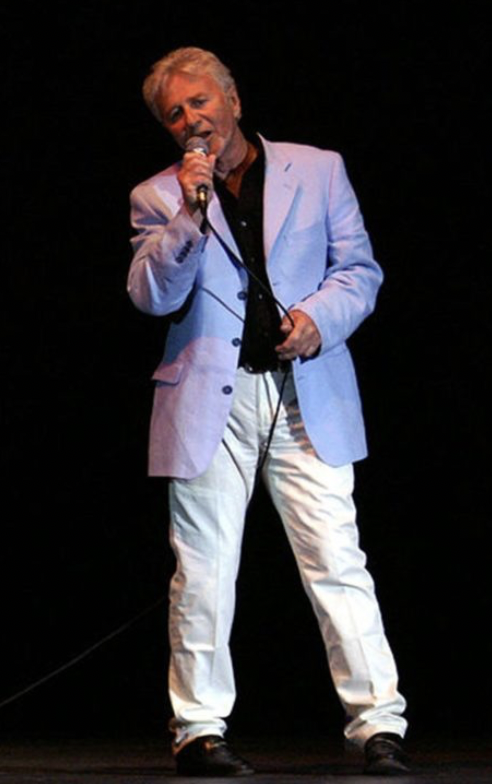 “He said that if we were in America,” Greenaway said later, “we would be lauded for being such creative guys, not punished for it”.”
“He said that if we were in America,” Greenaway said later, “we would be lauded for being such creative guys, not punished for it”.”
Ironically for Tony Burrows, an Edison Lighthouse band toured for years afterwards with not one original member from the studio musicians who created their hit, and Brotherhood of Man – with a very different line-up for the '76 hits Save Your Kisses For Me -- were resurrected for a few years without him.
Burrows performed with the middle-of-the-road James Last Orchestra, did more session work as a studio backing singer (he's on Elton's Levon and Tiny Dancer), sang advertising jingles and his last real flicker of fame came with another made-up group First Class.
They recorded such a Beach Boys' soundalike hit (Beach Baby) that Brian Wilson believed they were from the West Coast.
At the time of this writing Tony Burrows is 81 and doubtless sometimes pulls out his scrapbook of 1970 and shakes his head in wonder at the good times he had and the pleasure he gave.
And that's why we need to talk about Tony Burrows.
.
For other articles in the series of strange, sad or interesting characters in music, WE NEED TO TALK ABOUT . . . go here.
.
.
.


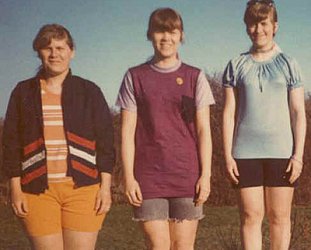

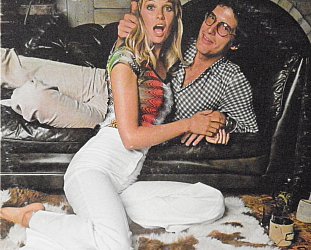
post a comment